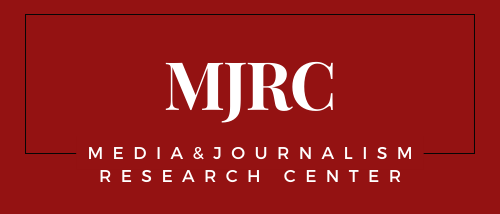IPI and MJRC Launch Overview Report on Media Capture in Europe
The International Press Institute (IPI) and the Media and Journalism Research Center (MJRC) have released an overview of the Media Capture Monitoring Report series, titled European Media Freedom Act: Solution to Capture or Just Fine Print?
This report provides a comparative assessment of media capture in seven EU Member States, examining the legal frameworks designed to safeguard media pluralism and editorial independence. It draws on country-specific analyses of Bulgaria, Finland, Greece, Hungary, Poland, Romania, and Slovakia to evaluate how well their legal systems align with the European Media Freedom Act (EMFA), which EU nations must comply with by August 2025. These countries were selected based on their geographic diversity and the extent of media capture in their media landscapes. Finland, a Nordic country with a strong record in media freedom, was added for comparison, providing insights into how EU regulations shape different media environments.
Key findings
- Public Service Media continue to be at risk: In several countries, public service media remain vulnerable to political influence, with governance structures failing to ensure editorial independence and a plurality of views. Hungary represents the most extreme case with public media effectively serving as government mouthpieces. The recent change in the legal status of the Slovakian public broadcaster from RTVS to STVR enabled the government to replace the management with their own appointees. All countries should do more to reinforce political independence and guarantee adequate financing of the public media.
- Regulatory independence undermined: Media regulatory bodies are increasingly politicized and at risk of falling under government control. The record varies but Poland and Hungary have the most politicized regulators, while many others are subject to political interference. All countries should review their appointments process to ensure regulators are run by competent and politically neutral experts.
- Misuse of state funds: State advertising is frequently allocated in a non-transparent and discriminatory manner, often favoring pro-government media outlets. The degree of the problem varies, but none of the countries studied have adequate measures in place to protect against the abuse of state funds.
- Media market concentration: Ownership of major media outlets is often overly concentrated among politically connected business elites. This is particularly evident in Hungary, where control over media by government allies dominates the media landscape. Media pluralism tests for mergers, conducted by politically independent regulators, are essential to preserve the diversity of news sources and opinions.
This Overview report, together with the country-specific reports, provides an important resource for media rights organizations and policymakers working to uphold press freedom across the European Union.
The report is accessible here.
Photo by Gayatri Malhotra on Unsplash
Invest in independent media research and join a community of practice.
Your contribution supports MJRC’s investigations and global analysis. As a supporter, you can receive early access to new findings, invitations to small-group briefings, inclusion in our Supporters Circle updates, and the option to be listed on our Supporters Page.
Contribute to MJRC
